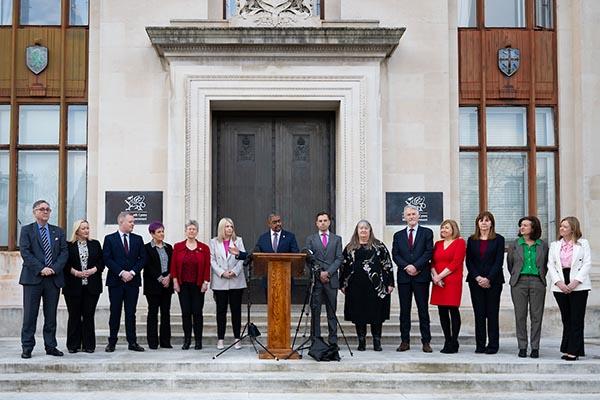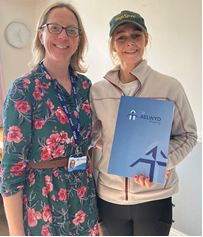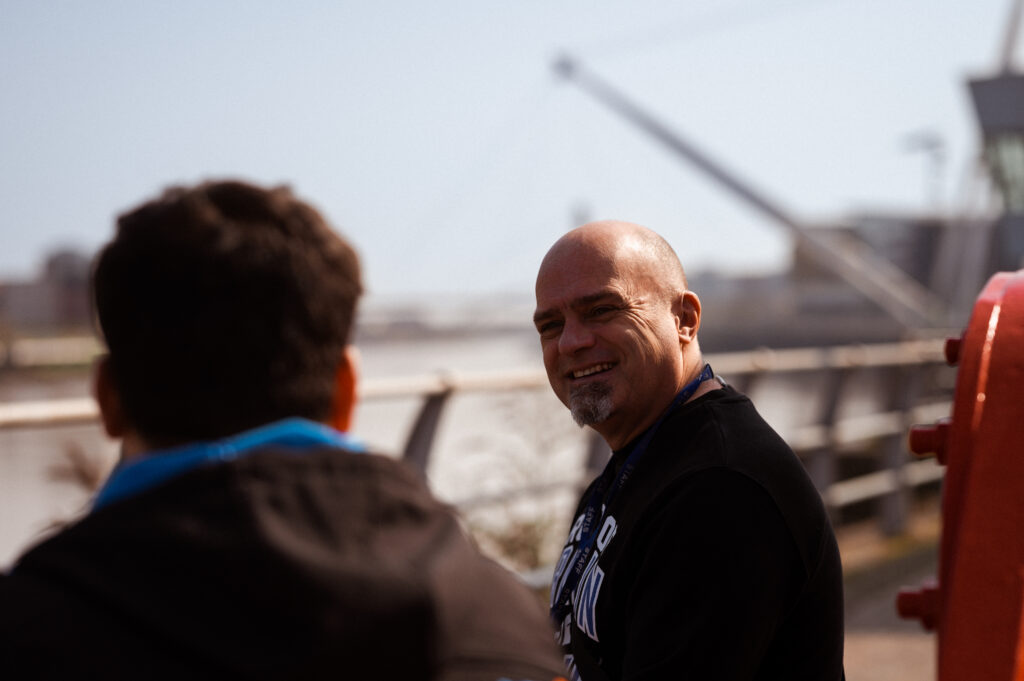A NEW GOVERNMENT FOR WALES

On 21 March, the newly elected First Minister, Vaughan Gething MS, announced his Cabinet (whose members are now to be known as Cabinet Secretaries) and Ministers. Cytûn has written to Mr Gething, congratulating him on his appointment as the first Black leader of a European nation, and looking forward to his continuing his predecessors’ commitment to chairing the Welsh Government’s Faith Communities Forum. We have also written to Mark Drakeford MS, on his retirement as First Minister, to thank him for his commitment to supporting Wales’s churches and other faith communities during his term of office, and especially during the Covid pandemic.
Huw Irranca-Davies MS, Cabinet Secretary for Climate Change and Rural Affairs, and Lynne Neagle MS, Cabinet Secretary for Education, join the cabinet for the first time, and Jayne Bryant MS becomes a minister for the first time, covering Mental Health and Early Years, Cytûn looks forward to engaging with all three in their new roles, and has written to them to welcome them into post. Ms Bryant inherits consultations by Welsh Government on draft strategies for suicide and self-harm prevention and mental health and wellbeing, Cytûn will be responding to both and will welcome input from our members and readers by 30 May 2024, for submission by 11 June.
Lesley Griffiths MS has become Cabinet Secretary for Culture and Social Justice, and at the time of writing we believe that she will be responsible for liaison with the third sector and with faith communities, including the Third Sector Partnership Council where Cytûn provides the lead representative for the Inter-faith Council for Wales.
We will also continue to engage on behalf of our member churches and organisations with the other ministers who are continuing to serve, many in different portfolios to previously. They are:
- Counsel General-designate – Mick Antoniw MS
- Cabinet Secretary for Economy, Energy & Welsh Language – Jeremy Miles MS
- Cabinet Secretary for Health & Social Care – Eluned Morgan MS
- Cabinet Secretary for Finance, Constitution & Cabinet Office – Rebecca Evans MS
- Cabinet Secretary for Housing, Local Government & Planning – Julie James MS
- Cabinet Secretary for North Wales and Transport – Ken Skates MS
- Chief Whip & Trefnydd – Jane Hutt MS
- Minister for Social Partnership – Hannah Blythyn MS
- Minister for Social Care – Dawn Bowden MS
Picture: Welsh Government
VOTER ID REQUIRED AT UK ELECTIONS 2024

Two elections during 2024 will be the first in Wales where voters will need to bring photo ID to the polling station to cast their votes. The Electoral Commission has details on its website of the forms of ID which are acceptable, and how voters who do not possess it can apply for a Voter Authority Certificate. Some member churches have prepared publicity material for churches around the change.
The first of these elections is the Police and Crime Commissioner election on May 2. Candidates in these elections do not have the same rights as candidates in other elections to post material free of charge to all voters, so they are not often well understood and turnout can be low, unless they coincide with another election.
At the time of publication, it is possible that a UK General Election may be held on May 2. If not, it must be held before 28 January 2025. The same voter ID rules will apply. Our Feb/Mar 2024 Policy Bulletin included information on a number of coalitions set up by or involving members of Cytûn which aim to raise awareness of election issues. The Britain & Ireland website churcheselection.org.uk is now live and regularly updated, and Cytûn’s election web page will publish bilingual resources from member churches and organisations as they become available.
Pic: Electoral Commission
COVID-19 INQUIRY COMES TO WALES
From February 26 to March 14 the UK Covid-19 Inquiry held oral hearings in Wales. Cytûn has published its National Conversation report (May 2021) and sent it to the inquiry with an package of additional information and offered to present formal evidence on behalf of churches and the Inter-faith Council for Wales. This offer was supported by core participant Covid Bereaved Families for Justice Cymru, but not accepted by the inquiry, and there was no mention during the hearings of the impact of the Welsh Government’s decisions on religious observance or faith communities.
Gethin Rhys, Cytûn’s Policy Officer, who followed the hearings remotely, said: “The questions and answers were interesting, and the written evidence reveals much about the modus operandi of Welsh and UK Governments and their dealing with each other. Documents such as reports by Professors Ailsa Henderson and Dan Wincott about the devolved constitution of Wales will be extremely useful to all those interested in the governance of our country. So also the written evidence from former First Minister Mark Drakeford MS, ministers such as First Minister Vaughan Gething MS and former Education Minister Kirsty Williams, and the Commissioners for Older People and Children in Wales.
“But three weeks – far less than devoted to England – was not enough to address all the questions raised. Indeed, Kirsty Williams, for example, was not called to give oral evidence although many other witnesses referred to her. At times, the questioning lawyers acknowledged that they were under time pressure and could not ask about every subject or even follow up on the implications of the witnesses’ answers. A lot of time was spent questioning every witness from among the politicians about their use of Whatsapp – a somewhat peripheral topic, which seems to be obsessing this inquiry, and at times watching the rushed questioning was frustrating.”
There are further modules to follow, including those on the health service, care services, education and other public services, and the impact on business and equalities. But none of these will have specific sub-modules about Wales, and it is therefore difficult to know how the Welsh aspect will be dealt with during these hearings. Although “the closure and reopening of places of worship” is part of the inquiry’s terms of reference, it is not clear where there is space for investigating that.
During the period of these hearings, Marie Curie held a day of reflection commemorating those who died during the pandemic. This was, for the first time, on the first Sunday of March – the date recommended by the UK Commission on Covid Commemoration. A minute’s silence at midday was not convenient for many churches, as it followed or fell in the middle of a service, and the date is very close to St. David’s Day. Cytûn has conveyed this to Marie Curie as they plan ahead.
CHURCHES IN ACTION – AELWYD HOUSING
In 1991 three denominations in Wales came together to form Aelwyd Housing, a not for profit charitable housing association. The Baptist Union of Great Britain and the Presbyterian and United Reformed Churches established the organisation with a vision to provide homes for retired clergy and Christians across South Wales, with former church land used for development. Aelwyd Housing has grown over the years and today owns or manages almost 300 homes for social rent in South Wales. Aelwyd Housing remains the only faith based Welsh housing association, and now provides homes to anyone is in housing need regardless of faith.
Aelwyd Housing is one of the smallest housing associations in Wales, in a sector where the largest will soon own 20,000 homes. The Chief Executive Sharon Lee believes its size is what makes Aelwyd special and allows it to stand out in the sector: “Our size means we can provide services in a very bespoke and personalised way. Staff know the name of every resident and as most of our residents are older people, this makes a huge difference. Everything we do is about putting kindness first. The values and Christian ethos of Aelwyd Housing means every interaction with residents is kind and compassionate. It is the only housing association in Wales with ‘Justice’ as one of its values.”This approach means Aelwyd Housing has been the best performing traditional housing association in Wales for several years and won the Customer Excellence Award at the Welsh Housing Awards in 2022.

As the housing crisis in Wales sees more and more people becoming homeless or struggling to afford their home, the organisation is keen to do more. In 2023 it purchased homes in Neath Port Talbot from a private landlord who threatened to evict the tenants. The homes are now in the process of being refurbished and the tenants are paying a more affordable rent.
Many churches are managing surplus buildings or acting as private landlords, which requires resources and increasing legal compliance. The Renting Homes (Wales) Act requires landlords to meet much stricter standards and many landlords are leaving the sector. This has contributed to a lack of homes to rent in Wales.
Sharon Lee sees a role for churches in helping to tackle the housing crisis and encourages them to partner with local housing associations to release surplus land and buildings. She’s keen for Aelwyd Housing to build on its heritage and work with churches who want to facilitate a long benefit to their community. “If a church decides to partner with us or another housing association to provide homes, it leaves a legacy that will benefit generations of people to come. It also takes away the huge demand on time and resources when churches want to focus on mission and being a blessing to their community.”
If you would like to know more about the work of Aelwyd Housing or would like advice on the housing options for church owned land and buildings please contact Sharon Lee, Chief Executive at Aelwyd Housing sharonl@aelwyd.co.uk or 02920 481203.
Picture: Resident in a property acquired by Aelwyd Housing from her private landlord
Helping parents get involved in public decision making
Cytûn was pleased to represent the churches at the launch of Parents Connect Wales hub, Children in Wales’ brand new online resources hub for parents and professionals. The aim is to help parents get more involved in contributing to public decision making, because traditional consultation processes are often difficult for busy parents to access. We are aware that Christian parents are often frustrated by the limitations of these processes. Readers can access the full recording of the webinar to learn more about this hub and how it will develop in future, as well as hear about how Children in Wales have engaged with parents during the Welsh Government funded project over the past year.
CHURCES IN ACTION – CHURCH ARMY AMBER PROJECT
The Church Army works throughout Wales in partnership with the Church in Wales. The Amber Project is one of Church Army’s key projects and has been running for over 21 years, based in the centre of Cardiff; operating out of the Cardiff Quaker meeting house.
Operations Manager Tim Crahart explains: We provide help and support to:
- young people who have experience of self-harm aged 14-25
- young people who are trans, non-binary or exploring their gender identity aged 12-25
Why Amber? The name was chosen to convey a sense of protection and that sap, a tree’s blood, becomes something beautiful and enduring. Amber seeks to provide young people with a safe space in which kindness is a core value and where a feeling of community exists.
We offer a range of services to support the young people:
- Our Counselling helps young people to identify and verbalise their emotional distress.
- One to One Support seeks to resolve the under pinning practical issues that are feeding their emotions and the group sessions create a supportive community in which to build relationships. We see this process as enabling, encouraging, empowering and enriching.
- Arts based workshops and group sessions (singing, music, theatre, art & crafts) provide the young people with a safe space to learn new skills, grow their confidence and build relationships. Isolation often feeds into the emotional distress that our young people feel, so building community is at the core of the healing process.
The project adopts a gender affirming approach to working with young people and we have one group, Constellation, which is specifically for young people who are trans, non-binary or exploring their gender identity.
One of our young people who has gone on to volunteer for the project had this to say, “Before Amber, my life was a mess, and now my life is still a tiny bit of a mess, but I think everyone’s is, but I’m a lot happier, and I want to live, which, you know, 13 year old me, never thought I’d be here. Now, I’m 7 or 8 years self-harm free. I want to show the young people that, you might struggle, but you can do it!”
ASSISTED DYING – WHAT NEXT?
The view that medically assisted dying should be legalised leads, in almost every session of the Westminster Parliament, to the presentation of a bill to that effect from the back benches. In practice, it would require support (in the form of debating time) from the government of the day for such a bill to reach the statute book, but with the leaders of both the Conservative and Labour Parties having publicly stated that they would be ready to support the idea, it is likely that there will be another attempt after the General Election. A bill passed in Westminster would apply to England and Wales, although the Welsh Government and Senedd would also need to make some changes in terms of devolved health and social care.
The House of Commons Health and Social Care Committee has therefore carried out an inquiry and on 29 February it published a comprehensive report about the latest evidence from different parts of the world. The report does not recommend one way or the other in terms of changing the law, but it does recommend improving access to palliative care and better funding for hospices. The intention of the report, it is said, is to present a balanced overview of what the evidence we have received has suggested, as well to draw upon research and information available in the public domain (para 5). It will therefore be an important resource in any discussion in the next Westminster Parliament.
The only Cytûn member to submit evidence was the Catholic Bishops’ Conference of England and Wales, although a number of other Christian organisations and individuals presented evidence from various Christian perspectives. This may be an issue that member denominations of Cytûn will wish to consider, and that individual church members will want to discuss with candidates in the 2024 UK General Election.
REFUGEES ROUGH SLEEPING CALLS FOR URGENT ACTION

The UK has a long history of hosting refugees with the most famous example being the Kindertransport during World War II when 10,000 unaccompanied children arrived here to be ‘hosted’ in people’s homes. More recently, people in the UK were so concerned about the fate of Ukrainians following Putin’s invasion that they opened their homes to refugees in the Homes for Ukraine Scheme.
With the war in Ukraine and conflict in Gaza grabbing the headlines, the violence in Sudan, Somalia, Ethiopia and Afghanistan to name but a few, is largely unreported and is putting millions of people in danger.
Housing Justice Cymru’s Hosting Project is a vital part of the battle to alleviate homelessness in Wales and they urgently need more hosts in Cardiff, Newport, Wrexham and Swansea. Funded by Comic Relief and Welsh Government, the Project connects volunteer households with a spare room with people who urgently need somewhere safe to stay. With no right to work, no access to accommodation, and no access to benefits, many people find themselves completely destitute while they seek asylum in the UK. The current political climate leaves these people uncared for and unwelcome.
Our hosts are fantastic people who welcome others into their home for a temporary period. The time and stability hosting provides gives people the chance to heal, access support and advocacy, and to build a sense of belonging. You can find out more about hosting with HJC here or by emailing Hostingcymru@housingjustice.org.uk
Picture: Housing Justice
Apprentices in Christian Ministry

St Padarn’s Institute has been looking to establish an apprenticeship in Christian Ministry in partnership with the Welsh Government, and eventually succeeded in doing so at the end of July 2023. In order to start in September 2023 it was made available in year 1 to Church in Wales apprentices only. This gave an opportunity to pilot the scheme and also to evaluate the teaching and employment aspects. 9 young people joined the programme in September 2023 from Cardiff, Pontypridd, Haverfordwest, Milford Haven and Aberystwyth.
It is designed for those exploring vocations in Christian Ministry (Vicar, Chaplain, Priest, Pastor, Minister, Youth/Children/Family Pastor, evangelist, schools workers) and from September 2024 it will be open to people from any Christian denomination in Wales. It is primarily aimed at those who are 18 to 30 (but exceptions can be made to that – and have been already). So, if you are looking to employ an apprentice from September, we would love to have a conversation. There are financial incentives for those applying and every apprentice will undertake a Level 4 (first year degree) programme in Theology, Mission and Ministry – delivered by Monday morning Zoom sessions and 2 residentials. Subjects include New & Old Testament, Christian Mission, Christian Doctrine, Reflective Practice and Practical Theology.
This apprenticeship is being delivered by Coleg Sir Gâr and St Padarn’s Institute with additional funding support from Welsh Government. If you are interested in finding out more, drop an e-mail to mark.grifiths@stpadarns.ac.uk who will set up a Zoom/Teams call.
Picture: Some of the first apprentices (St Padarn’s Institute)
POLICY UPDATES
A little extra money found for the Budget
On March 6, the Senedd passed the Welsh Government’s final budget for 2024-25, following scrutiny by Senedd committees of the draft budget (see our Feb/Mar 2024 Policy Bulletin). A late additional funding allocation by the UK Government allowed some small increases. Following lobbying by the housing and homelessness sector in Wales – including members of Cytûn who work in the field – this included an uplift of £13 million to the Housing Support Grant which provides vital support to those who are homeless. There were also ameliorations to the proposed reductions in the children and communities grant and funding for apprenticeships.
Churches were concerned at proposed reductions in funding for Cadw and the Royal Commission on Ancient & Historical Monuments in Wales. £1.4m of the reduction was restored, but the budget will still be £0.7m less, plus the reduction caused by inflation. The UK Government Budget the following day will cause further changes to the Welsh budget, but details are not yet known.
The budget also seeks to raise revenue. Until May 13 there is a consultation on increasing the maximum charge for non-residential social care from £100 to up to £125 per week, affecting many members in local churches.
Welsh Government and Senedd accept Constitutional Commission recommendations
The Feb/Mar 2024 Policy Bulletin reported on the final report of the Independent Commission on the Constitutional Future of Wales, co-chaired by Bishop Rowan Williams and Prof. Laura McAllister. Welsh Government announced on March 12 that it is accepting the ten specific recommendations regarding strengthening the current devolution arrangements. It welcomes the suggestion of devolving more powers over broadcasting and communication and the Crown Estate, and of placing inter-governmental relations within the UK on a statutory footing. However, its acceptance of the devolution of some areas – such as rail infrastructure and (gradually) policing and justice is dependent on the receipt not only of funding equivalent to current spending in Wales on these areas, but also recompense for what the Welsh Government perceives to be past underspend. On this basis, it is unlikely that this devolution will occur rapidly.
Welsh Government also accepted the Commission’s recommendation to seek new ways of engaging with the public around governance issues, although the acceptance of this recommendation talks of building on existing policy (such as making voter registration easier and citizenship education within the new schools curriculum in Wales) rather than more radical ideas.
Welsh Government’s approach was endorsed by a majority vote in the Senedd on March 19.
Medical Examiners
The Feb/Mar 2024 Bulletin referred to the introduction of Medical Examiners as part of the death registration process. The UK Government has unexpectedly postponed the secondary legislation to put this on a statutory footing, but the non-statutory scheme in Wales remains in place.
CONTACTING CYTÛN’S POLICY OFFICER
Parch./Revd Gethin Rhys – Swyddog Polisi/Policy Officer
Cytûn – Eglwysi ynghyd yng Nghymru/Churches together in Wales
Registered office: Room 3.3, Hastings House, Fitzalan Court, Cardiff CF24 0BL
Mobile: 07889 858062
E-mail: gethin@cytun.cymru
www.cytun.co.uk @CytunNew www.facebook.com/CytunNew
Hapus i gyfathrebu yn Gymraeg ac yn Saesneg.
Happy to communicate in Welsh and English
Cytûn is a registered company in England and Wales | Number: 05853982 | Registered name: “Cytûn: Eglwysi Ynghyd yng Nghymru/Churches Together in Wales Limited” |
Cytûn is a registered charity | Number: 1117071
Publication date: March 25 2024. The next Bulletin will be published on May 22 2024.
